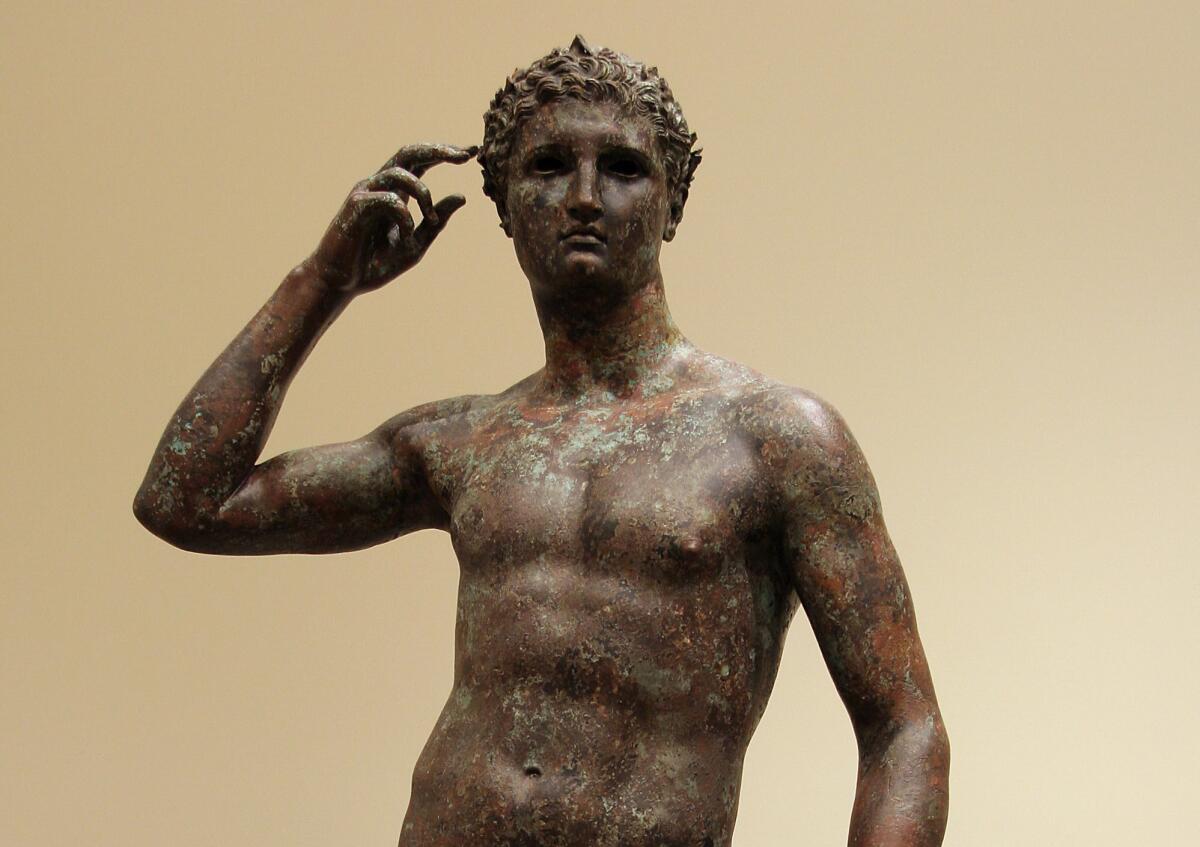Breaking: Italian court’s ruling on ‘Getty Bronze’ is delayed until Thursday

- Share via
The J. Paul Getty Trust will have to wait a bit longer to find out an Italian high court’s decision concerning the statue known alternately as “Victorious Youth” and the “Getty Bronze.”
Getty spokesman Ron Hartwig said it has “heard unofficially” that the Court of Cassation in Rome put off until Thursday the decision it previously had said would come Wednesday regarding the 2,300-year-old statue.
The delay gives the Getty another day before it could face a critical decision if the ruling goes against it: Does it return one of the most prized statues in its antiquities collection to Italy or keep it and risk being deemed a scofflaw by the court and cultural authorities in Italy who provide loans of prominent works for display at the Trust’s two Los Angeles museums?
A lower court in the Marche region of Italy has ordered the Getty to hand over the life-size but footless statue, which is believed to have been created by Greeks rather than Romans in the 300s BC.
An Italian fishing vessel from the port of Fano netted the grime-encrusted bronze in international waters of the Adriatic Sea in 1964. The fishermen brought it to land and hid it, according to testimony in past court cases in Italy, before selling it to an antiquities dealer who sent it out of the country without a required export permit.
The Getty bought the statue in 1977 and it has long been a highlight of the Getty Villa antiquities museum in Pacific Palisades, where perhaps its leading rival for most eminent statue is a marble Roman portrayal of the hero Hercules that’s copied from an earlier Greek sculpture.
The Getty appealed to the Court of Cassation, Italy’s equivalent of the U.S. Supreme Court, after the regional court’s 2012 order to turn over “Victorious Youth.”
A core legal issue is whether the fact that the bronze was fished out of international waters puts it beyond the reach of an Italian law that since 1939 has declared all cultural discoveries in Italian territory to be the government’s property.
Officials in Marche who brought the suit contend that it should be sent back because of the illegalities that mounted after it was brought to land; the Getty argues that any illegalities the fishermen and dealers may have committed by hiding and improperly exporting the statue did not affect their right to own and sell it.
Officials in Marche have persistently sought “Victorious Youth” despite previous court decisions and investigations dating to the 1960s that resulted in no penalties for the fishermen and a priest who allegedly helped them hide the statue, and no binding court decision requiring subsequent foreign owners to return it.
More to Read
The biggest entertainment stories
Get our big stories about Hollywood, film, television, music, arts, culture and more right in your inbox as soon as they publish.
You may occasionally receive promotional content from the Los Angeles Times.











